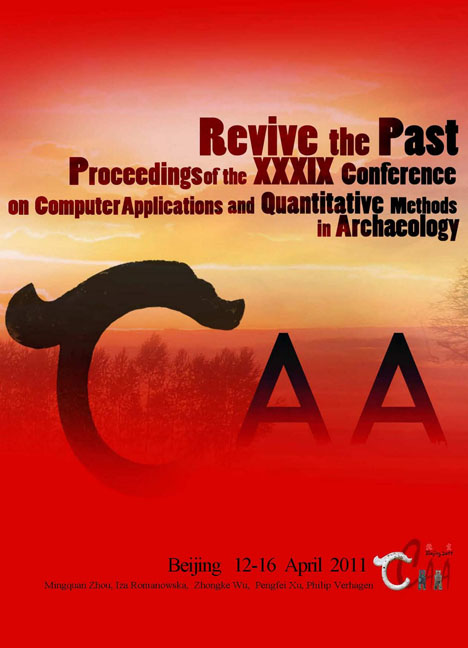 Revive the Past
Revive the Past The Transatlantic Archaeology Gateway: Bridging the Digital Ocean
Published online by Cambridge University Press: 23 June 2021
Summary
Abstract:
The Archaeology Data Service (ADS) founded in 1996, is a national repository for digital data from the UK historic environment sector. In the USA Digital Antiquity and its digital repository, the Digital Archaeological Record (tDAR), was established at Arizona State University in 2008. Both organisations are acutely aware of the problem of ‘siloed’ data, i.e. data only discoverable and/or accessible from a single location, and actively research how to make their holdings widely available. Funded by Joint Information Systems Committee (UK) and the National Endowment for the Humanities (USA), the Transatlantic Archaeology Gateway (TAG) has developed services and a search interface, for crosssearching between ADS and tDAR at archive collection level. This project is the first example of this kind of technical cooperation between digital archaeological archives based in Europe and the USA and has significant lessons for the development of cross-searching and data sharing between such geographically remote archives.
Key Words: Digital Archiving, Service Oriented Architecture, Cross-Searching, ADS, tDAR
Introduction
The use of ICT for teaching and research has become well established in archaeological practice on both sides of the Atlantic and discipline of archaeology has often lead the way in adopting these technologies when compared to other humanities. This is not least because modern archaeological practice results in the routine creation of large volumes of primary digital data. This data is generated not only by the use of sophisticated recording techniques such as geophysical and bathymetric survey, laser scanning and photogrammetry, but also by the extensive use of databases and rich media as standard excavation recording methodologies. This results in complex datasets in a variety of formats, including structured and unstructured text, spreadsheets and databases, still and moving images, CAD, GIS, landscape and object-scale 3D scans, and virtual reality models. Much of this primary data is born digital as standard and as the only record of unrepeatable fieldwork it is essential that these data are preserved, for re-use and reinterpretation.
In the UK the Archaeology Data Service (ADS 2011) has grown to become the leading national repository for digital data from the UK historic environment sector, cross-cutting the academic and public and private sectors (Richards 2008).
- Type
- Chapter
- Information
- Revive the PastProceedings of the 39th Conference of Computer Applications and Quantitative Methods in Archaeology, pp. 198 - 208Publisher: Amsterdam University PressPrint publication year: 2012
- 1
- Cited by


